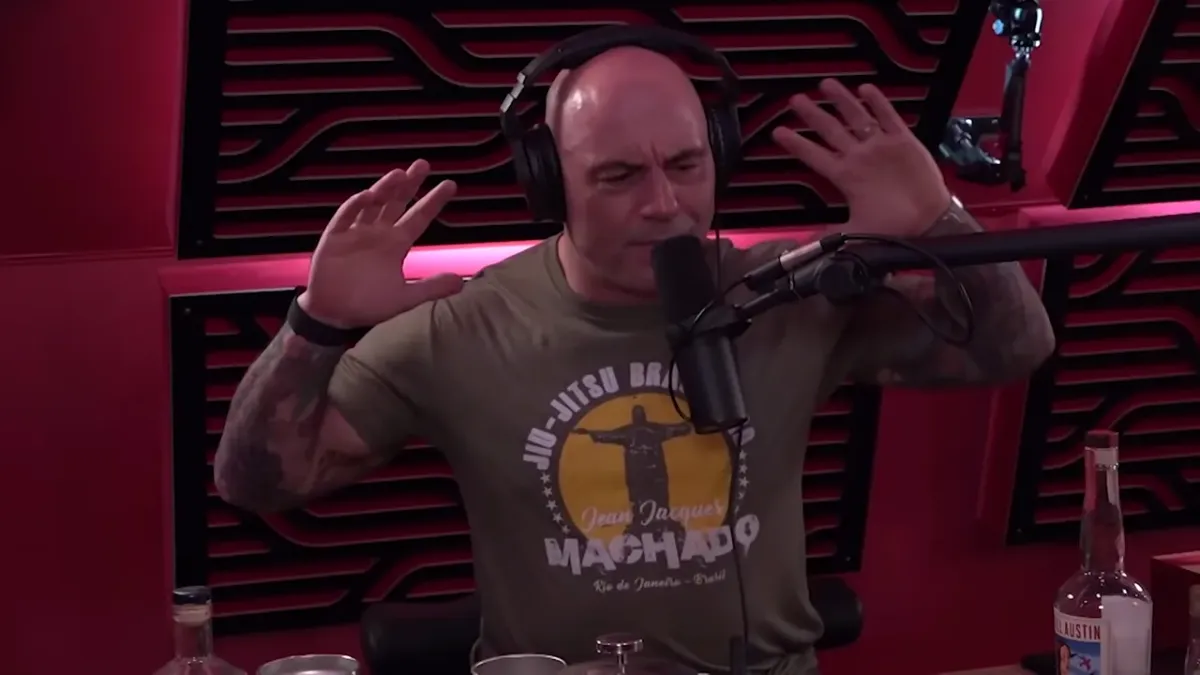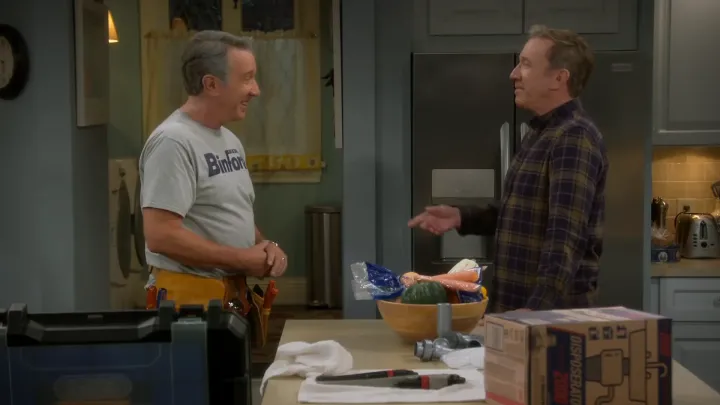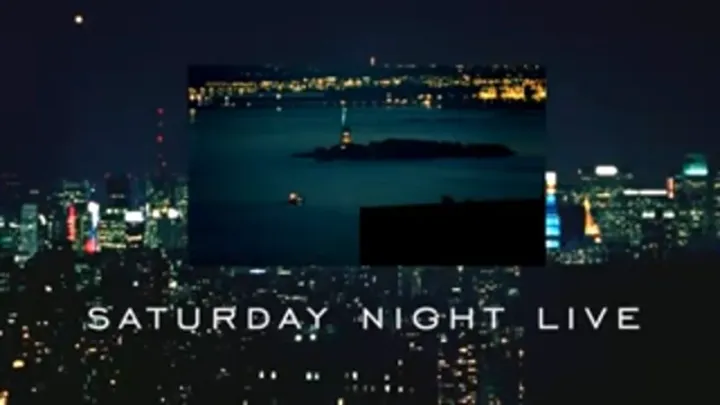Joe Rogan's Vision for the Austin Comedy Scene
"A place where we all feel safe, we're all surrounded by like-minded artists."

Thanks for reading Humorism! If you like what I do here, I hope you'll help support it by subscribing for six bucks a month:
A few months ago Joe Rogan broadly outlined his plan to create a comedy utopia in Austin. I’m not a regular Rogan listener but I happened to listen to this particular episode, which I revisited when I spoke to Carina Magyar last month. The more I think about it, the more ominous I find it. I want to share it with you because I think it’s worth dwelling on, whether you like Rogan or not, for the same reason the musings of philanthropists and CEOs are worth dwelling on. His wealth and influence—currently ideological, soon to be material—oblige us to take note.
The monologue is reproduced below, with light edits to remove filler words and such. You can also find it for yourself here at about 2:58:00. He expanded on this vision somewhat in a more recent episode, but that segment focuses mostly on logistical details of the club he plans to open, so I don't think it's worth getting into here. I’ll just make a few comments below the fold:
It's a weird art form, man. And one of the things that's so critical about a place like the Comedy Store, and one of the things that I need to recreate out here in LA [Austin], is a place where we all feel safe, we're all surrounded by like-minded artists. And we need an artists' colony out here. And we don't need Hollywood. And that's one of the—look, I had a lot of crazy ideas coming out here. And sometimes I think—sometimes I think I'm guided by this weird instinct that knows what I would want someone to do. If I wasn't me. If I wasn't me and there was this dude who got this crazy deal where he got all this money and he had all this influence because he had this—what would I want? What would I want him to do? I'd want him to make a utopia for the art form, make some place where I'm like, listen, get wild. Get cray—let's create, let's do it. Let's—I want to support you. I want to elevate all these artists. I want to let you know you're okay. I want to let you know, there's a place that you can come. You can experiment. You can express yourself. You can work on your act. And then when your act gets good and you want to show it to the world, I want to help you show it to the world. And I want more people to try. I want more open mic-ers. I want more beginners. I want more people who are thinking, "I don't like this accounting job. I want to be a comic." I want you to try. I want them all to try.
Like, Mitzi Shore, outside of comedians, she's the most important figure in the history of standup comedy. I need to bring it to LA—or, to Austin—but in my LA studio, there's a painting. You saw that painting. There's a painting of Mitzi that's on my fuckin' wall in the studio. That's gonna come out here. I'm gonna bring that out here. It needs to be here. I need that spirit. Because I want that here. I want—and it's never been done, as a comic, but I think I've got a rare and unusual opportunity to do it. To help. This is a weird art form, man. And the art form has taken a big hit during this pandemic. It's taken a big hit because, you know, during woke culture, there's a lot of challenges, but I think those challenges are ultimately gonna lead to stronger comedy. Better comedy. Guys like Tim Dillon. Guys like Andrew Schulz. Guys who are just bucking the system during Covid, during the pandemic, during the woke culture and getting buck wild.
And I feel an extraordinary responsibility. And I have like a drive to—it's hard to explain. I even explained it to my wife, or explained it to my manager, to anybody. I'm like, I have a responsibility outside of doing this podcast. I have this responsibility to this art form because I think I have the ability to do something that—it's unusual. And I think I gotta do it. I think I gotta create a real colony out here, a colony that's independent of Hollywood, but also supportive. Like I want to let everybody know, like, you're a fuckin’ good comic and a good person. You want to just figure it out, I want to elevate you. I want to boost your signal. I want to get it out there. I really do. It's very, very, very important to me. It is. I want to help all kinds of people, authors and musicians and all these interesting people that have all these interesting ideas, but I want to help the art form. I really do. I want to help it the way Mitzi helped me.
The most notable thing about Rogan’s vision is how basic it is. He acknowledges that his money and platform give him a responsibility to help people, but the way he sees himself helping people is by building… a comedy scene? It really doesn’t sound like anything new: a place where novice comedians can do open mics and shows, experiment and express themselves, and when they “figure it out” he’ll “elevate” and “boost” them. Okay, that’s a nice enough idea, but it’s also something that already exists in Austin without him. What does he want to create that’s more than just a comedy scene?
The answer is spread out across the monologue. He wants to create a safe place for like-minded artists; he thinks Hollywood isn’t supportive enough of comedians; and he thinks “woke culture” (which he complained about earlier in the episode) has been bad for comedy, but will ultimately create better comedy as people like Tim Dillon and Andrew Schulz fight back against it. There’s not much ambiguity here: the guy wants to create a haven for the un-woke and the anti-woke. Some might argue that this already exists too, and that it’s called “standup comedy.”
Then there’s the bit about carrying on the spirit of Mitzi Shore, whom Rogan calls one of the most important figures in the history of comedy. Earlier in the episode he tells his guest, comic and United States of Al writer Fahim Anwar, that he believes standup comedy is “the purest meritocracy there is: you’re either funny or you’re not.” It’s always funny to me when comics hold simultaneously that comedy is a meritocracy and that this or that gatekeeper played some critical role in the industry. If comedy were truly meritocratic, the role of gatekeeper would be purely functionary: a middleman who dispassionately observes which comics get the most laughs and puts them in front of audiences. If gatekeepers are valuable because they do more than that—say, because they recognize and nurture raw potential—then comedy can’t possibly be a meritocracy. It’s shaped instead by the subjective tastes and personal proclivities of a historically unaccountable ownership class. (This is all setting aside the fact that financial barriers to entry nullify any prospect of meritocracy from the get-go.)
And as we all know, Mitzi Shore was hardly a benevolent ruler. She practiced favoritism and nepotism, gave fewer opportunities to women, had sexual relationships with her workers, traded spots for sexual and other favors, didn’t pay comics for years, vigorously fought a union effort, and allegedly skimmed from her club’s receipts. If her legacy has any positive attributes—and I don’t buy “recognizing who’s good at comedy and profiting from their work” as a valuable contribution to the form—then they are overshadowed by the thought of what comedy might be if she hadn’t been such a horrible boss.
Rogan’s vision for the future of comedy is the history of comedy. It’s also the present. Here’s what’s happening in Austin right now: two weeks ago The Creek and the Cave, formerly a major incubator for the right-wing elements infecting New York’s comedy scene, removed Tony Hinchcliffe from a weekend of shows with Rogan. A source in the scene told me one of the Creek’s owners assured a group of comics that Hinchcliffe was banned for the foreseeable future. Well, last week he was back at the Creek, performing with the Legion of Skanks and Tim Dillon. He’s also been recording his podcast Kill Tony at Vulcan Gas Company, the club where he called Peng Dang a “filthy little fucking ch*nk” a few weeks ago. The weekend after that incident made headlines, Vulcan welcomed Compound Media’s live show. Next month Shane Gillis will record a special at the Creek. In September, Andrew Schulz will headline at the Paramount Theatre. Sometime before or after that, Rogan will open his own club and consolidate the forces he set into motion when he moved to Austin last summer and performed a series of high-profile super-spreader shows with Dave Chappelle, the increasingly reactionary Louis CK and Jeff Ross rehabilitator who’s opening his own comedy club in Ohio.
View this post on Instagram
A post shared by Mathieu Bitton (@candytman)
View this post on Instagram
A post shared by John Mayer (@johnmayer)
If Joe Rogan truly wanted to transform comedy, he could give thousands of comics thousands of dollars to pursue standup. He could buy existing clubs and turn them into artist-owned cooperatives. He could set up funds to compensate artists at small clubs that don’t have the revenue to pay well. He could use his platform to lobby for pay increases in markets like New York and Los Angeles, where spot pay has stagnated for decades. He could invest in new spaces in underserved communities, with paying opportunities for people underrepresented in comedy. Instead he appears set on making the industry a safer space for racism and abuse than it already is. Here's hoping he fails.
Header image via YouTube.


